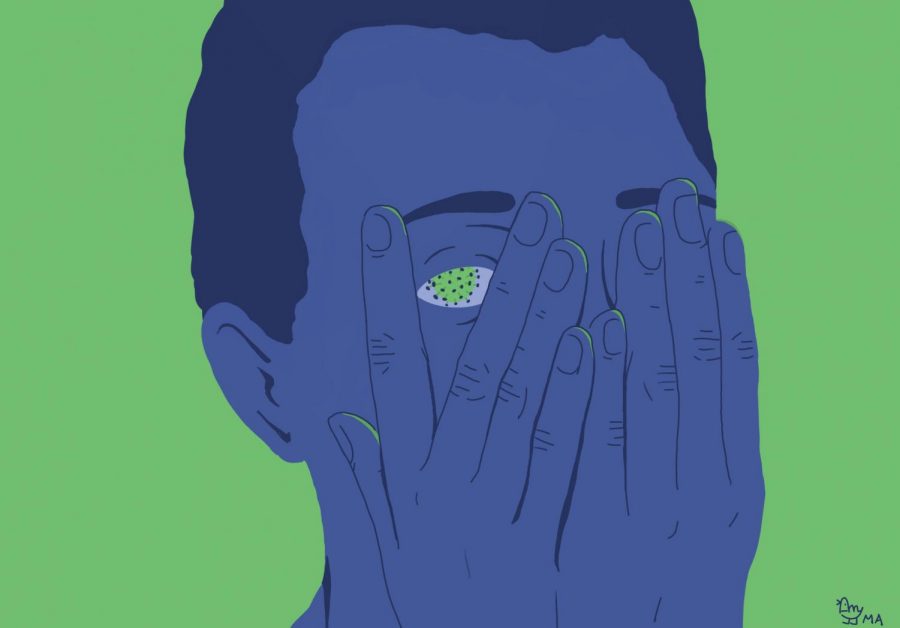Tuning Immunity: How Vaccinated Exposure Can Make Us Safer
For over a year, our country has tried to reduce the number of Covid cases to reduce the number of Covid deaths. With the arrival of vaccines, however, our goal has shifted. Now, we must focus on keeping the dynamic system of community immunity as finely tuned as possible.
In an effort to be safe, some businesses and events are segregating the vaccinated from the unvaccinated, but this separation is the worst possible thing to do. When removing the vaccinated from the general population, they do nothing to contribute to the blocking of transmission, which is an important part of herd immunity. Getting one’s vaccine and then separating from the unvaccinated, therefore, only helps oneself and does nothing to help the general population. Therefore, to achieve optimal community immunity, unvaccinated people should be dispersed as widely as possible among the vaccinated population.
At first this mingling of vaccinated and unvaccinated may sound frightening, but in fact it is safer for all involved. Creating a buffer of vaccinated, immune people protects those who are unvaccinated, while new studies suggest that vaccinated people may sharpen their immunity if exposed to the unvaccinated.
The purpose of a vaccine is to pre-expose your immune system to the virus so that it can attack the actual virus more efficiently and effectively. Having a vaccine does not mean you have a bubble of protection that deflects the virus as soon as it comes within three feet of you. With a vaccine, you can still encounter the virus, you’re just prepared enough that you’ll be able to fight it off without getting sick.
Since the vaccines are so effective, exposure to the virus for vaccinated people is no more dangerous than things we do all the time. In fact, it may be safer to be exposed to Covid on a regular basis than not. It’s effectively like getting a booster vaccine every time you encounter the virus. Dr. Michael Mina, “assistant professor of epidemiology and of immunology and infectious diseases at the Harvard School of Public Health,” said to Intelligencer, “an exposure that can be detectable on a PCR (which implies it replicated) is not necessarily a bad thing but can be seen as a free, robust booster.” Your immune system sees the virus, reacts accordingly, and since it has already been prepared by the vaccine, will be able to kill off the virus before you can get sick. A recent paper with authors from the N.I.A.I.D. (National Institute of Allergy and Infectious Diseases) found that in most vaccinated people, the virus is killed before it can even get past the nose — there is no reason to fear being exposed to the virus if you’re vaccinated. The paper, which is in the process of being peer-reviewed, goes on to say that, “These data suggest that boosting of vaccine-induced antibodies can occur following upper airway infection in animals that have minimal viral replication in the lower airway.” This exposure, therefore, may keep the immune system strong and ready to react.
In addition, it may provide protection against new strains of the coronavirus. Michael Mina told New York Magazine, “getting exposed while otherwise protected can boost the depth and breadth of my immune response for years to come and might even improve my ability to deal with variants.” Since the immune system kills the virus before it can reach the lungs or other important areas, you don’t get sick, but the exposure to new strains may prepare the immune system for variants of Covid it has never seen before. Mina also clarifies that this does not mean that someone should actively try to catch Covid after they are vaccinated, but rather that it can have positive effects in the future if one happens to be infected.
The recent detection of Covid cases among vaccinated Yankees is an example of this protected exposure. All who tested positive were asymptomatic with the exception of two with mild symptoms. As CDC Director Rochelle Walensky said to ABC, “This is the vaccine working.” Their lack of symptoms shows how the vaccine protected them effectively from getting sick. In addition, as Mina mentions in his interview, their immunity is likely better now as they have been exposed to a slightly different strain and therefore have stronger, broader immunity.
This goal of interaction has some important implications. In particular, it indicates that Groton should be completely open next year. With almost the entire community vaccinated (with a few health and religious exemptions), students, faculty, and staff, will be sufficiently protected that they will not get seriously sick, and any exposure which they might get from those who are unvaccinated may actually protect them more. As they interact, if they encounter the virus in any way, it will help sharpen their immunity.
Opening Groton up completely, therefore, is in fact the safest thing for the school. If the immune system does not get exposed to the virus regularly, it will not be as prepared as new strains appear. Being exposed, however, may keep one’s immunity sharp and updated. This also means that people should not be too alarmed if there is a positive test result in a vaccinated person.
Groton should be completely back to normal in the fall: no distancing, no masks, no nothing. Although it may seem frightening, it is actually the safest action that the school can take. The Covid virus is certainly not going away, and so being open will help keep the immunity of the community finely tuned and ready to fight it off.







